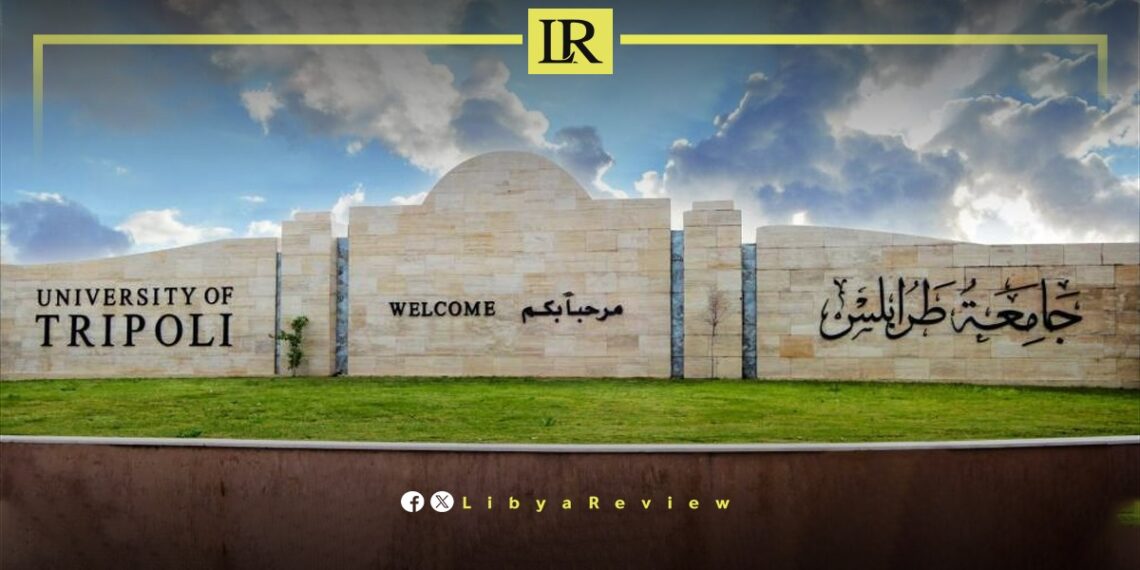Tajoura, a city besieged by relentless armed conflicts, witnessed a severe escalation in violence, leading to the suspension of exams at the University of Tripoli. The ongoing clashes between the Rahbat al-Diroua Brigade, led by Bashir al-Baqara, and the Sabriya al-Rathimi Brigade have created a climate of fear and anxiety among the city’s residents.
The situation worsened after members of the Rahbat Brigade detained security personnel from Tanaseeh TV channel, affiliated with the Sabriya al-Rathimi Brigade, pushing tensions to the brink of explosion. The security crisis has not been confined to Tajoura; similar unrest has erupted in Ajilat, particularly in the new district, where clashes have broken out between elements of the First Support Force, led by Mohamed Bahroun, known as “Al-Far,” and the 103rd Brigade, commanded by Othman Allahib.
Along the coastal road between the Melita Gate and Ras Youssef Gate, around 40 armed vehicles were deployed, heightening tensions and fears among citizens. In the midst of this chaos, clashes in Tajoura have intermittently flared, with brigades exchanging shells and gunfire in an ongoing battle. One of the shells struck a tire factory on the industrial road, prompting authorities to close the city’s entrances and exits and prohibit residents from carrying their phones to prevent filming.
The tragic conditions in Tajoura have profoundly impacted daily life, with the Emergency and Ambulance Service reporting the death of a woman due to a head injury sustained during the clashes. This incident led the spokesperson for the service, Osama Ali, to issue a statement calling for an immediate ceasefire and holding all parties responsible for civilian safety. Ali confirmed that the service had received distress calls from the Maraghna area in Tajoura, urging the provision of safe corridors for families trapped in resorts.
In an effort to alleviate the escalating humanitarian crisis, the Emergency and Ambulance Service announced its intervention to transport and redirect families trapped in Tajoura resorts via Wadi al-Rabee Road, while the roads leading to the Heart Hospital in Tajoura were closed due to the intensifying clashes.
The negative impact of armed conflicts in Tajoura has extended beyond human and material damage to affect educational aspects as well. The faculties of Economics and Law at the University of Tripoli announced the suspension of exams scheduled for Wednesday due to the clashes. This decision highlights the profound impact these conflicts have on daily life and underscores the urgent need for security and stability in Libya.
The violent clashes in Tajoura between the Rahbat al-Diroua Brigade and the Sabriya al-Rathimi Brigade have resulted in civilian casualties and security tensions in both Ajilat and Tripoli, amid a widespread deployment of armed vehicles.
The residents of Tajoura and Ajilat are enduring an intolerable situation, living in a constant state of fear and anxiety. This catastrophic situation demands urgent intervention from the concerned authorities to stop the bloodshed and protect innocent lives. The armed conflicts sweeping through these cities reflect the chaos and instability that Libya has experienced for years, highlighting the urgent need for serious political dialogue to put an end to this tragedy.
Despite repeated calls for a ceasefire and the provision of safe corridors for civilians, these appeals seem to fall on deaf ears. The warring factions continue to exchange fire without regard for civilian lives, and local authorities appear incapable of imposing security and protecting citizens. This deplorable situation calls for international intervention to support efforts aimed at achieving peace and stability in Libya.
Amid the darkness engulfing Tajoura and Ajilat, there remains hope that these repeated calls for peace and security will yield tangible results. National dialogue and political consensus are the only paths to ending these conflicts and ensuring a better future for the Libyan people. With continued international and local efforts to achieve peace, there remains hope that Libya will one day experience lasting peace and stability.
In conclusion, this article reflects the immense tragedy experienced by the cities of Tajoura and Ajilat and calls for a serious stand from all parties to achieve security and peace in Libya.


